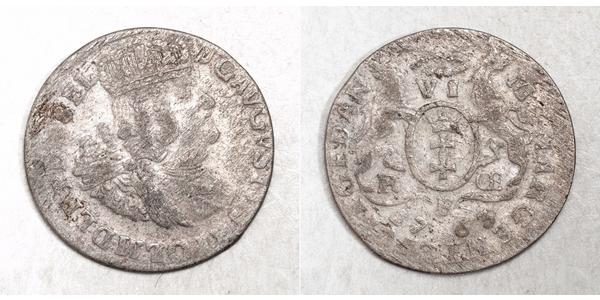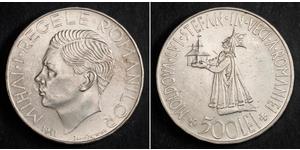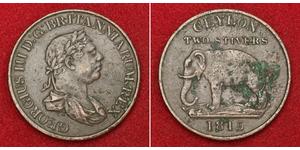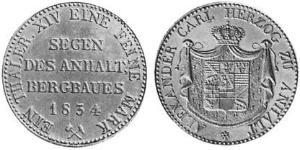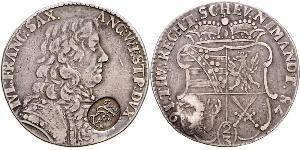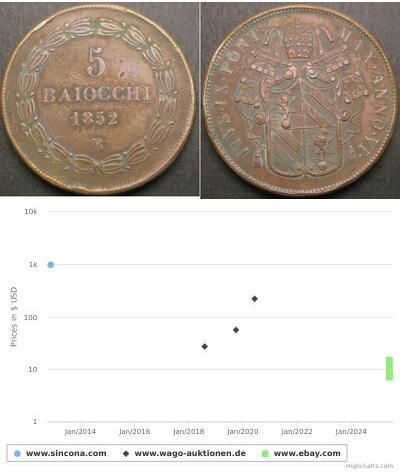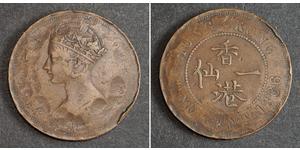(sold for $26.0)
1763, Poland, Danzig (City), Augustus III. Scarce Billon 6 Groszy Coin. Fine+
Mint Year: 1763
Mint Place: Danzig
Reference: KM-117.
Denomination: 6 Groszy
Condition: Weakly struck as usual, otherwise Fine+
Material: Billon (silver & bronze alloy)
Diameter: 23mm
Weight: 2.69gm
Gdansk (German: Danzig) is the city at the centre of the fourth-largest metropolitan area in Poland. It is Poland's principal seaport as well as the capital of the Pomeranian Voivodeship. It is also historically the largest city of the Kashubian region. The city's name is thought to originate from the Gdania river, the original name of the Motlawa branch on which the city is situated. Gdansk and Gdania are considered to be derivations from the Gothic name of the area (Gutiskandja), however this has also been questioned.
Augustus III (Polish: August III Sas, Lithuanian: Augustas III; 17 October 1696 – 5 October 1763) was King of Poland and Grand Duke of Lithuania from 1733 until 1763, as well as Elector of Saxony in the Holy Roman Empire where he was known as Frederick Augustus II (German: Friedrich August II).
He was the only legitimate son of Augustus II the Strong, and converted to Roman Catholicism in 1712 to secure his candidacy for the Polish throne. In 1719 he married Maria Josepha, daughter of Joseph I, Holy Roman Emperor, and became Elector of Saxony following his father's death in 1733. Augustus was able to gain the support of Charles VI by agreeing to the Pragmatic Sanction of 1713 and also gained recognition from Russian Empress Anna by supporting Russia's claim to the region of Courland. He was elected king of Poland by a small minority on 5 October 1733 and subsequently banished the former Polish king Stanisław I. He was crowned in Kraków on 17 January 1734.
Augustus was supportive of Austria against Prussia in the War of the Austrian Succession (1742) and again in the Seven Years' War (1756), both of which resulted in Saxony being defeated and occupied by Prussia. In Poland, his rule was marked by the increasing influence of the Czartoryski and Poniatowski families, and by the intervention of Catherine the Great in Polish affairs. His rule deepened the social anarchy in Poland and increased the country's dependence on its neighbours, notably Prussia, Austria, and Russia. The Russian Empire prevented him from installing his family on the Polish throne, supporting instead the aristocrat Stanisław August Poniatowski, the lover of Catherine the Great. Throughout his reign, Augustus was known to be more interested in ease and pleasure than in the affairs of state; this notable patron of the arts left the administration of Saxony and Poland to his chief adviser, Heinrich von Brühl, who in turn left Polish administration chiefly to the powerful Czartoryski family.

|
Posted by:
anonymous 2023-11-28 |
1 Cent Hong Kong Copper Victoria (1819 - 1901)
group has 44 coins / 42 prices
⇑

